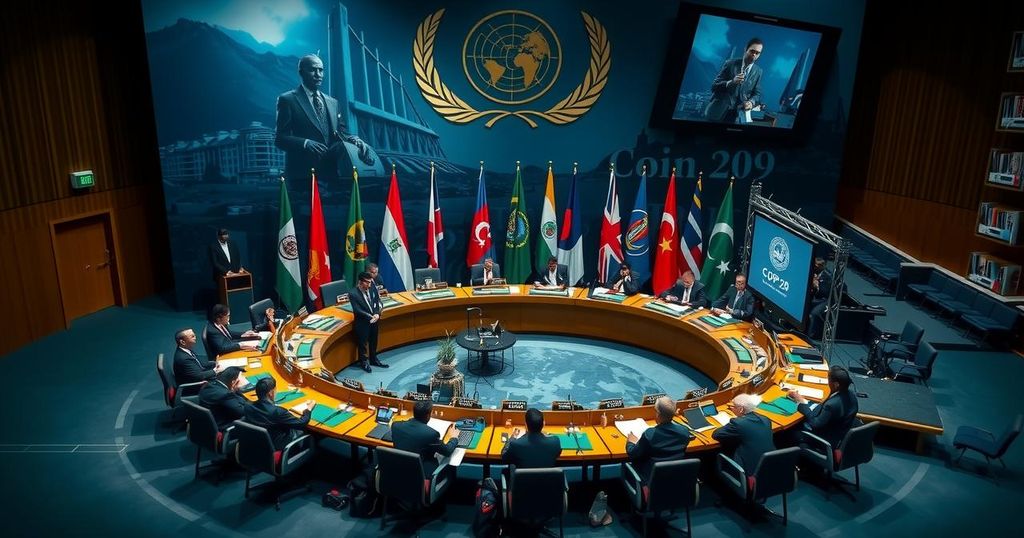COP29 opened in Baku, Azerbaijan, amid escalating demands from developing nations for increased climate finance from wealthy countries, with negotiations centered on establishing a new finance target. COP29 is critical as it coincides with projections of severe temperature rises and reinforces the link between climate change and global public health threats. Countries face pressure to transcend traditional obstacles and deliver impactful agreements while addressing fossil fuel interests and leadership absences.
The COP29 climate conference commenced in Baku, Azerbaijan, drawing 40,000 delegates as tensions heightened between developed and developing nations regarding climate finance commitments. Developing countries are urging wealthier nations to pledge trillions of dollars to address the climate crisis, amidst increasing pressure following recent climate disasters. At the heart of the discussions is the requirement to establish a new global climate finance target by 2025, which is aimed at replacing the inadequate annual $100 billion pledge established over a decade ago. COP29 is termed the ‘finance COP’ due to the urgency surrounding these fiscal negotiations. Addressing the alarming prospect of a projected rise in global temperatures, COP29 President Mukhtar Babayev emphasized the immediate need for decisive action, stating, “We must be totally honest – current policies are leading us to three degrees of warming, temperatures [that] would be catastrophic for billions.” The stakes are exceptionally high as negotiators grapple with defining the financial contributions required from affluent nations, which are obstructed by long-standing disagreements regarding responsibility and fiscal strategy. As the conference progresses, significant concerns remain about the influence of fossil fuel interests, further complicating progress towards impactful climate agreements. The absence of key global leaders at COP29, including those from major emitting nations, raises questions about the potential for meaningful outcomes from this gathering. Furthermore, experts indicate that climate change already results in severe health consequences, with WHO warning that nearly seven million deaths occur each year due to climate-related issues. The push for health considerations in climate action is gaining traction, as the interconnectedness of climate change and public health becomes increasingly apparent. Consequently, the call for ambitious climate finance and the integration of health into climate policy are critical focal points of COP29, as countries navigate this complex landscape while facing mounting pressure to deliver impactful results.
This article discusses the current state of the COP29 climate conference, held in Baku, Azerbaijan, where global representatives are convening to address urgent climate finance issues. The conference highlights the stark divide between developed and developing nations regarding financial commitments to combat climate change. With increasing climate-related emergencies and health impacts, the discussions emphasize the importance of establishing a structured climate finance goal and incorporate public health implications into climate policy. Recent data on global temperature rises and the escalating health crisis due to climate change underline the urgency of decisive action.
In conclusion, COP29 represents a critical juncture in global climate negotiations, particularly regarding financial commitments from wealthy nations to support developing countries. The conference’s focus on aligning health with climate policy signifies a broader recognition of the extensive impacts of climate change on public health. The challenges, including the influence of fossil fuel interests and the absence of key leaders, underscore the need for unified and vigorous efforts to ensure substantial outcomes that address the pressing concerns of climate change and health ramifications.
Original Source: healthpolicy-watch.news







